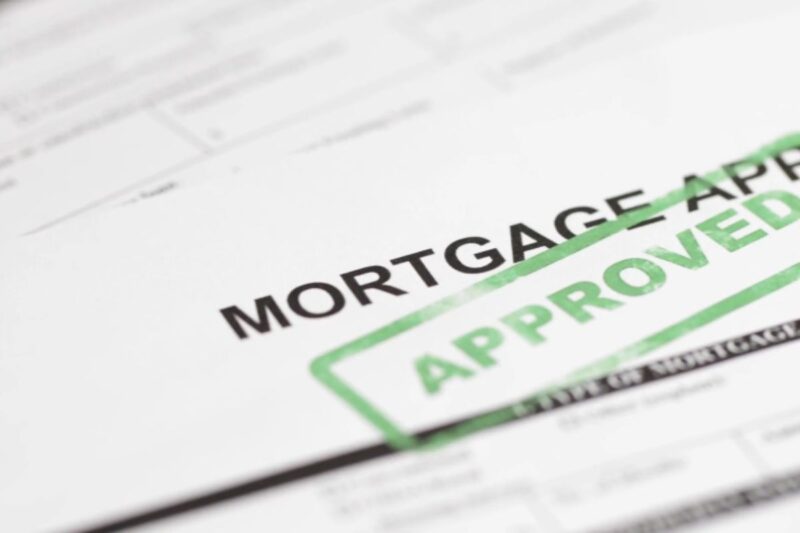As you approach the end of your mortgage term, you stand at a pivotal juncture that invites careful consideration: the mortgage renewal process. This is not merely a routine formality; it’s a critical financial decision that can profoundly influence your long-term financial health.
The opportunity to negotiate your terms and rates presents itself up to 120 days before your current mortgage concludes. For many homeowners, however, the tendency is to settle for the first offer from their lender without fully exploring the better options available.
A staggering $300 billion in fixed-rate mortgages will be up for renewal next year alone, and with an average potential savings of $13,857 by switching lenders, this moment shouldn’t be taken lightly.
Consider Leslie, who is facing her mortgage renewal in the next few months. Transitioning from a salaried position to commissioned work and having an excellent credit score, she has multiple credit instruments with her current bank.
However, she is not just seeking a new rate; she is interested in optimizing her mortgage renewal to eliminate significant corrosive debt quickly. With her potential savings calculated at approximately $30,000 over the loan period, her decision on whether to accept the quoted rates from her bank—ranging from 1.87% to 2.49%—is all the more critical.
Despite historical rates being low, fixed and variable mortgage rates have surged by over 275 basis points from their pandemic-era depths. Monthly payments for renewing borrowers may soar between 25% and 54%, depending on their mortgage type.
As Leslie navigates this process, she encapsulates the struggle many face—a pivotal moment where insightful mortgage renewal tips can mean the difference between feeling financially overwhelmed and empowered. You too can capitalize on this financial opportunity through diligent preparation and negotiation.
This guide will explore essential mortgage renewal tips, so you can secure the best mortgage renewal deals available and save significantly on payments.
Understanding Mortgage Renewal: A Key Financial Decision
The mortgage renewal process represents a pivotal moment in your financial journey. It is not merely a formality; it requires thorough understanding and attention. Typically, mortgage renewals transpire every five years, although this can vary based on the terms of your loan.
You have the opportunity to reset your mortgage’s terms, which can lead to better interest rates and conditions that align more closely with your financial goals.
Interest rates significantly influence when you should renew your mortgage. You might want to consider an early renewal when rates are low, taking advantage of favorable terms. Additionally, some lenders provide options for early renewal, offering opportunities to secure a lower rate for a longer term. However, be aware of any potential penalties or fees associated with this route.
Several factors play into the timing of your renewal, including personal circumstances, real estate market conditions, and even the length of your mortgage term. This emphasizes the importance of understanding mortgage renewal and its implications.
Renewing on time can prevent penalties and maintain stable repayments, allowing for better budgeting and financial planning.
Shopping around for the best deal can yield significant savings. It is wise to begin researching potential lenders and interest rates at least six months before your current term ends.
When comparing offers, consider critical factors such as interest rates, amortization periods, estimated closing costs, and any associated fees. Consulting with a mortgage broker may also help you navigate the options available, increasing the likelihood of securing favorable terms.
| Factor | Details |
|---|---|
| Renewal Frequency | Typically every 5 years, may vary based on terms |
| Interest Rates | Lower rates can prompt early renewal |
| Benefits of Timely Renewal | Prevents penalties, maintains stable repayments |
| Research Period | Start exploring options 6 months prior to renewal |
| Considerations While Renewing | Interest rates, payment schedules, lender service |
Understanding mortgage renewal gives you the power to make informed decisions that can ultimately save you money and boost your financial health. This essential aspect of homeownership should never be overlooked, as it can have lasting impacts on your financial stability.
Your Current Mortgage: Why You Shouldn’t Settle for the First Offer

Many homeowners tend to accept the initial mortgage renewal offer from their lenders without question. This approach can lead to overlooked opportunities for significant savings. It’s common for lenders to present posted rates that may not reflect the best mortgage renewal deals available.
Instead of viewing mortgage renewal as a mere formality, consider it a chance to take control of your financial future.
Statistical evidence suggests that a large proportion of borrowers do not actively negotiate for better terms. As mortgage rates have recently dropped to an average of 6.59 percent, obtaining a competitive offer has become increasingly feasible.
Take the time to analyze the current market landscape and engage in meaningful dialogue with lenders to secure terms that align with your financial objectives.
Here are some strategies for effective negotiation:
- Compare your lender’s offer with other available options.
- Research current market rates to identify potentially lower terms.
- Understand the impact of closing costs and hidden fees, which typically range from 2% to 5% of the loan amount.
Keep in mind that refinancing can save you thousands of dollars over the life of your loan, especially if you secure a lower interest rate than your current offer. You can also improve your position by considering upfront payments that reduce your interest rate. Taking proactive steps can greatly influence the outcome of your mortgage renewal negotiations.
Mortgage Renewal Tips: How to Prepare for Negotiation
Entering the mortgage renewal process can often feel daunting. Yet, with the right mortgage renewal tips and preparation, you can navigate this crucial financial decision confidently.
As mortgage rates fluctuate, staying informed can empower you to make choices that save you significant amounts of money over time.
Research Current Market Rates
To set yourself up for successful negotiations, it’s essential to research current market rates. Explore various online tools that enable you to compare available mortgage rates.
Understanding where the market stands allows you to approach negotiations armed with valuable knowledge and a strong position. You may find that taking this step can lead to more advantageous terms than those initially offered by your lender.
Assess Your Relationship with Your Lender
Your relationship with your lender can significantly impact your negotiation preparation. If you have consistently made timely payments and maintained open communication, leverage this strong rapport to negotiate better terms.
A favorable history with your lender increases the likelihood they may accommodate your requests to keep you as a client. Don’t overlook the strength of this relationship when you sit down to discuss your mortgage renewal.
Identify Hidden Fees and Terms
Before finalizing any agreement, always clarify the details of your renewal offer. Hidden fees and less favorable terms can often be tucked away in the fine print, potentially undermining any savings from a lower interest rate.
Pay attention to penalties for early repayment, administrative costs, and any specific stipulations that could lead to additional charges. Being diligent in this area ensures that your mortgage renewal is truly beneficial to your financial health.
| Action | Description |
|---|---|
| Research Market Rates | Gather current mortgage rates from multiple sources to inform your negotiation strategy. |
| Evaluate Lender Relationship | Consider your payment history and overall relationship with your lender to leverage better terms. |
| Scrutinize Fees | Read all terms carefully to identify potential hidden fees that could affect your overall costs. |
| Plan Ahead | Begin the renewal process 4-6 months before the expiration of your current mortgage. |
| Consult a Broker | Engage with a mortgage broker to explore an array of options tailored to your financial needs. |
How to Negotiate Your Mortgage Renewal Successfully
Negotiating your mortgage renewal can be a powerful way to save money and secure better terms. Understanding the current market environment and effectively leveraging this knowledge will set you up for success in this crucial financial decision.
Leverage Competing Offers
Gathering offers from various lenders can significantly enhance your negotiation stance. This is a practical strategy on how to negotiate mortgage renewal, as presenting these competing rates to your current lender shows them you’re actively exploring alternatives.
With mortgage renewal rates often nearing 2% higher than the average five-year fixed mortgage rate, lenders may be more inclined to improve your terms to keep your business.
Be Prepared for Counteroffers
Expecting counteroffers is an integral part of the negotiation process. When you bring your research and competing rates to the table, your lender may respond with adjustments aimed at retaining your agreement.
Maintain flexibility and communicate your requirements clearly. Knowing your bottom line in advance allows you to navigate these discussions strategically, transforming potential hurdles into successful outcomes.
Understanding potential impacts on your finances from varying interest rates can lead to effective strategies and valuable tips for saving money on mortgage renewal.

| Action | Description | Benefit |
|---|---|---|
| Research Current Rates | Compare rates from various lenders to understand market offerings. | Empowers your negotiation strategy and establishes a solid reference point. |
| Present Competing Offers | Show your current lender offers from other institutions. | Can lead to better terms as lenders vie for your business. |
| Set Your Bottom Line | Determine the minimum terms you are willing to accept. | Aids in effectively navigating counteroffers without compromising your needs. |
Exploring Other Options: Should You Switch Lenders?
Evaluating your mortgage renewal options goes beyond simply accepting your current lender’s offer. Should you switch lenders? This question can open the door to significant financial benefits. By comparing offers and terms from various lenders, you might discover savings that make the process worthwhile.
The Financial Benefits of Switching
The financial benefits of switching mortgage lenders can be considerable. When your current lender shows little flexibility in negotiation, exploring new options might lead to a much lower interest rate.
Consider the various costs associated with switching, such as discharge fees, appraisal costs, and assignment fees, which typically range between $300 to $500. While switching can incur some upfront expenses, the long-term savings may outweigh these initial costs.
It’s essential to assess the prepayment penalties you might face if you decide to switch. For a variable-rate mortgage, this could amount to three months’ worth of interest. Fixed-rate mortgages may have similar penalties or differ, depending on market conditions.
Yet, many homeowners find that switching leads to better loan terms, improved prepayment options, and even debt consolidation possibilities, all of which enhance financial well-being.
How a Mortgage Broker Can Assist You
Utilizing mortgage broker assistance can significantly simplify the lender switching process. Brokers possess access to a wide range of lenders, streamlining comparisons of rates and terms. This can save you valuable time and reduce stress when navigating the complexities of mortgage renewal.
In addition, brokers can provide insightful advice tailored to your financial situation, making the prospect of switching lenders less daunting.
With the right broker, obtaining multiple preapproval options allows you to secure a deal that aligns with your financial goals. As you contemplate whether you should switch lenders, their expertise can be crucial in negotiating directly with lenders, potentially leading to favorable terms.
Conclusion
The process of mortgage renewal is far from a mere formality; it presents a vital opportunity to secure more favorable financial terms that can lead to significant savings.
By employing effective mortgage renewal strategies and conducting thorough research on market trends, you can transform what may appear as a daunting process into a rewarding experience. Proper negotiation during this renewal phase can make a remarkable difference in your financial security.
Actively considering options such as switching lenders or refinancing can offer you benefits tailored to your unique financial circumstances. By the end of 2026, millions of homeowners will face the need to renew their mortgages, making it essential to be prepared and informed about the possibilities.
Developing a keen awareness of your financial profile and understanding potential changes in your future plans will help you align mortgage terms more closely with your goals.
Ultimately, whether you choose to negotiate with your current lender or explore new options, the key to success lies in preparation and a proactive mindset. Consult with a mortgage professional or broker to navigate the complex landscape of rates, terms, and conditions.
Embrace this opportunity, and let your mortgage renewal become a strategic advantage in your financial journey.

